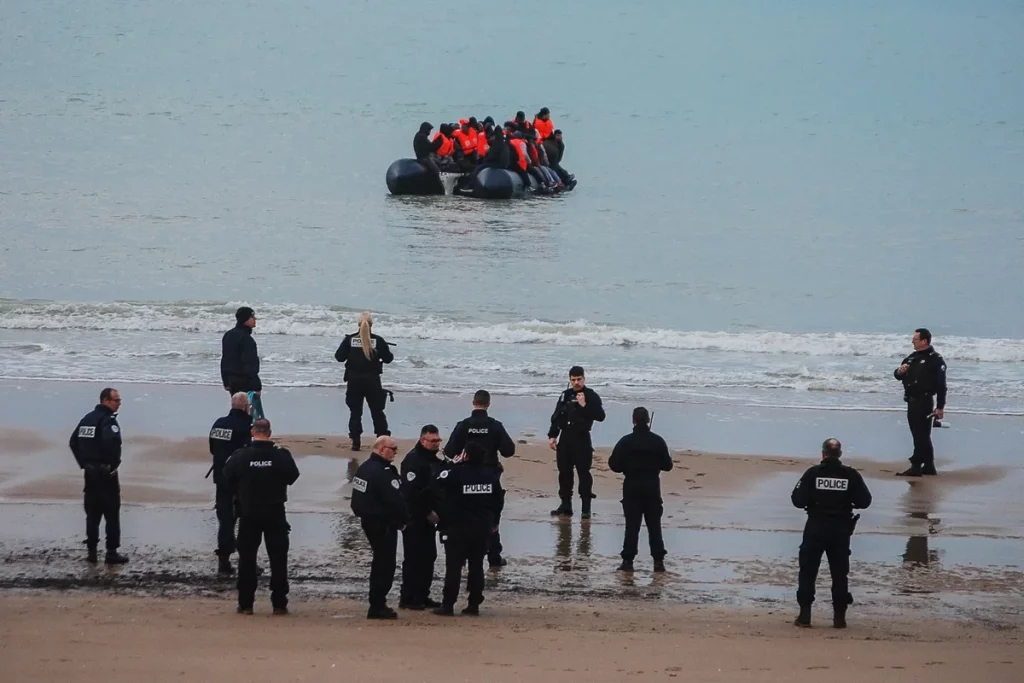The UK government is in ongoing talks with France over a possible migrant returns deal aimed at reducing the number of illegal Channel crossings. The proposed pilot scheme would be based on a one-for-one exchange, where the UK agrees to accept legal migrants seeking family reunification, in return for sending back undocumented migrants who arrive via small boats.
According to France’s interior ministry, this approach could disrupt smuggling networks and act as a deterrent for migrants considering the dangerous journey across the English Channel. The idea was first reported by the Financial Times and has since been confirmed by French officials in a statement to the BBC.
The talks come as the UK government looks for new ways to curb illegal immigration following Labour’s decision to scrap the controversial Rwanda deportation scheme. Conservative figures argue that removing that policy eliminated a critical deterrent to illegal crossings. However, Labour ministers say they are focused on working more closely with European countries like France to develop more practical and humane solutions.
UK Transport Minister Lilian Greenwood confirmed that discussions with the French government are underway, although she did not directly comment on the migrant return proposal. She told Sky News that the primary goal is to stop “the appalling and dangerous trade in people” across the Channel.
A spokesperson from the French interior ministry said the pilot project could eventually lead to a broader agreement among EU member states. “It is based on a one-for-one principle: for each legal admission under family reunification, there would be a corresponding readmission of undocumented migrants who managed to cross,” the spokesperson explained.
Migration policy experts, such as Peter Walsh from the Migration Observatory, say the plan’s effectiveness will depend on how many migrants the UK returns to France. He noted that simply returning small numbers may not make a significant impact but added that if enough migrants are sent back, it could deter future crossings.
The UK had previously committed nearly £500 million to France to support increased border enforcement and stop small boat crossings. That deal funded more officers and surveillance to reduce the flow of migrants across the Channel.
Critics of the new plan argue that it won’t go far enough. Shadow home secretary Chris Philp said the policy would only result in small numbers of returns and would fail to act as a deterrent. He contrasted this with the Rwanda plan, which aimed to send illegal arrivals to East Africa, but was eventually abandoned by Labour after legal hurdles delayed implementation.
Reform UK MP Lee Anderson said the government should focus on closing the borders entirely rather than negotiating return schemes. He described the pilot plan as too complex and costly, arguing instead for a more direct approach to stop illegal migration.
Despite the criticisms, the Liberal Democrats welcomed the proposed agreement. A party spokesperson said it would be “a positive step” and accused the Conservatives of years of tough talk without real solutions to small boat crossings. The Green Party has yet to respond publicly to the proposal.
Since coming to power, Prime Minister Keir Starmer has said he would pursue a Europe-wide migrant returns agreement, but such a deal remains elusive. Countries like Hungary, which have taken a hard stance on immigration, are expected to resist any broad EU return framework.
The UK government is also intensifying efforts to dismantle smuggling operations. New legislation has introduced a criminal offence for endangering lives at sea, carrying a maximum sentence of five years in prison. Officials maintain that there is no “silver bullet” to end illegal migration, and that various strategies must be used together.
According to the latest data from the Home Office, 705 migrants arrived in Dover in 12 small boats on Tuesday, marking the highest daily arrival figure this year. So far in 2025, a total of 8,888 people have made the journey, representing a 42% increase compared to the same period last year.
A Home Office spokesperson said that collaboration with France remains a top priority. Efforts are already underway to increase French coastal patrols, launch a specialist intelligence unit, and grant new powers to French authorities to intervene in shallow waters. The spokesperson added that the UK is also engaging with other European countries to develop fresh strategies to dismantle people-smuggling operations.
What is the goal of the UK-France migrant returns deal?
The deal aims to return undocumented migrants to France in exchange for accepting legal migrants, with the goal of discouraging illegal Channel crossings and weakening smuggling networks.

